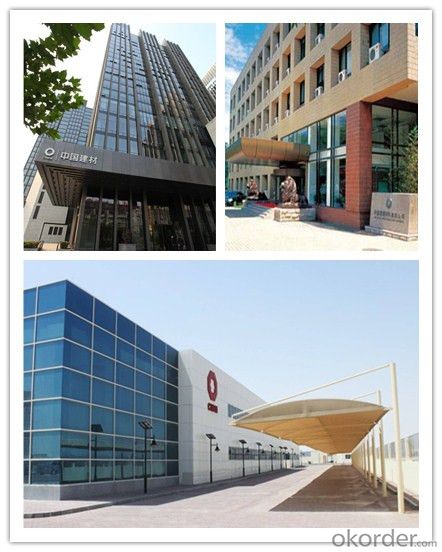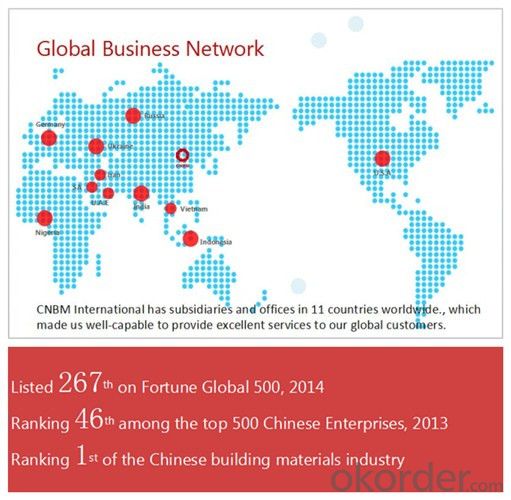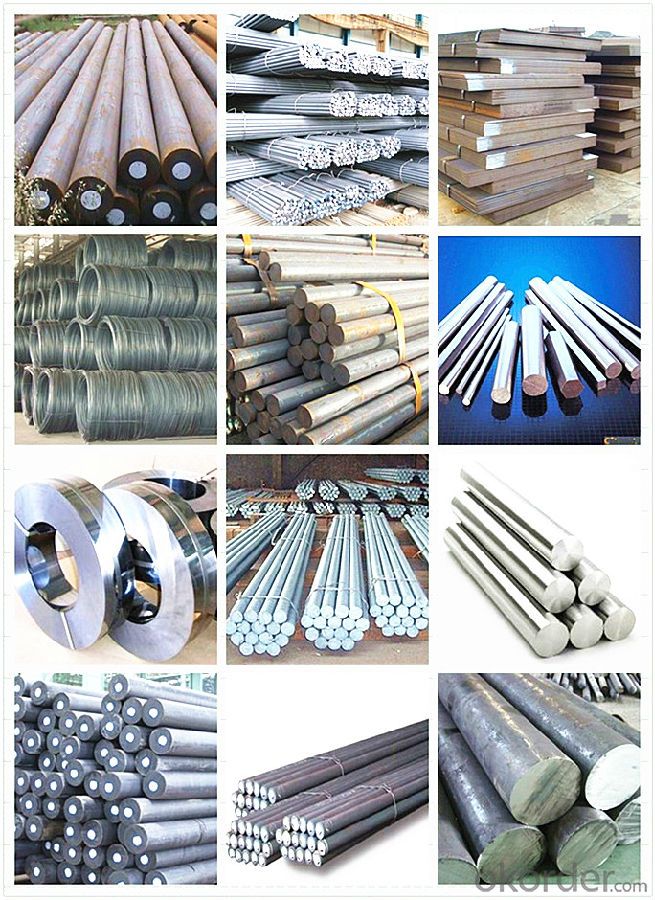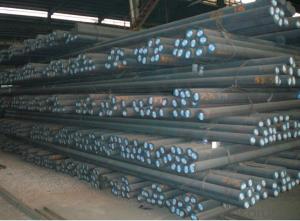Dia5-50mm Deformed Steel Rebar/Reinforcing Steel Bars/Iron Rod
- Loading Port:
- Qingdao
- Payment Terms:
- TT OR LC
- Min Order Qty:
- 5 m.t.
- Supply Capability:
- 100000 m.t./month
OKorder Service Pledge
Quality Product, Order Online Tracking, Timely Delivery
OKorder Financial Service
Credit Rating, Credit Services, Credit Purchasing
You Might Also Like
Item specifice
Type:
Carbon Steel,Spring Steel,Bearing Steel,Gear Steel,Deformed Steel,Stainless Steel,Alloy Steel
Shape:
Steel Coil,Steel Sheet,Steel Wire Rod,Steel Flat Bar,Steel Square Bar,Steel Angle,Steel Round Bar,Steel Billets
Technique:
Hot Rolled,Cold Rolled,Cold Drawn,ERW,Forged,Saw,Extruded,EFW,Spring
Surface Treatment:
Galvanized,Coated,Copper Coated,Color Coated,Oiled,Dry,Chromed Passivation,Polished,Bright,Black,PVDF Coated
Certification:
ISO,SGS,BV,IBR,RoHS,CE,API,BSI,UL
Thickness:
5-50mm
Width:
5-50mm
Length:
6-12m
Outer Diameter:
5-50mm
Net Weight:
100
Packaging:
seaworthy packaging
Dia5-50mm Deformed Steel Rebar/Reinforcing Steel Bars/Iron Rod
Detailed Information of Dia5-50mm Deformed Steel Rebar/Reinforcing Steel Bars/Iron Rod
| Name | Steel Round Bar |
| Shape | Round Bar/Square Bar/Flat Bar/Plate/Wire |
| Standard | GB/ASTM/SAE/AISI/DIN/JIS/EN/BS |
| Surface Treatment: | Black/Peeling/Polished/Machined |
| Delivery Condition: | Hot Rolled or Forged/Peeled or Black Surface |
| Test | SGS/UT 100% Elements Testing |
| Certificate: | ISO/Mill Certificate |
| Service: | 24 hours online service / |
| more than 20 years trading and manufacture | |
| Quality Assurance: | the third party inspection, such as SGS, BV, TUV…etc. is acceptable |
| Packaging Details: | Seaworthy Packaging or as per customer's packing instruction |
Product Overviews of Dia5-50mm Deformed Steel Rebar/Reinforcing Steel Bars/Iron Rod
| Product Name | Typical Grades | Diameter(mm) | Standard Adopted |
| Carbon Steel | 20 (1020/S20C/C22) | ||
| 40 (1040/S40C/C40) | Ø16-Ø300 | ||
| 45 (1045/S45C/C45) | |||
| Bearing Steel | GCr9 (51100/SUJ1) | ||
| GCr15 (52100/SUJ2/100Gr6) | Ø12-Ø250 | ||
| GCr9SiMn (A485-Gr.1/SUJ3) | GB/SAE/ | ||
| Cr-Mo Steel | 20Cr (5120/SCr420H/20Cr4) | JIS/DIN | |
| 40Cr (5140/SCr440/41Cr4) | Ø12-Ø250 | ||
| 42CrMo(4140/SCM440/42CrMo4) | |||
| Gear Steel | 20CrNiMo | ||
| 20CrMn(5115/SMnC420/20MnCr5) | Ø16-Ø600 | ||
| 20CrNiMo(8620/SNCM220/20CrMiMo2) |
Company Introduction of Dia5-50mm Deformed Steel Rebar/Reinforcing Steel Bars/Iron Rod
CNBM International Corporation is the most import and export platform of CNBM group(China National Building Material Group Corporation) ,which is a state-owned enterprise, ranked in 270th of Fortune Global 500 in 2015.
With its advantages, CNBM International are mainly concentrate on Cement, Glass, Iron and Steel, Ceramics industries and devotes herself for supplying high quality series of refractories as well as technical consultancies and logistics solution.


| After-sale service | l CNBM provides the services and support you need for every step of our cooperation. We’re the business partners you can trust; you can relax and get on with doing business. |
| l For any problem, please kindly contact us at any your convenient time, we’ll reply you in our first priority within 24 hours | |
| Advantages | l Industry experience over 20 years. |
| l Shipment of goods -More than 70 countries worldwide. | |
| l The most convenient transport and prompt delivery. | |
| l Competitive price with best service. | |
| l High technical production line with top quality products. | |
| l High reputation based on best quality products. | |
Packaging & Delivery of Dia5-50mm Deformed Steel Rebar/Reinforcing Steel Bars/Iron Rod
| Packaging Detail | Sea worthy packing /as per customer's packing instruction |
| Delivery Detail | 15 ~ 40 days after receiving the deposit |
Products Show

FAQ:
| Are you a trading company or manufacturer? | Manufacturer |
| What’s the MOQ? | 1000m2 |
| What’s your delivery time? | 15-20 days after downpayment received |
| Do you Accept OEM service? | Yes |
| what’s your delivery terms? | FOB/CFR/CIF |
| What's the Payment Terms? | 30% as deposit,70% before shipment by T/T |
| Western Union acceptable for small amount. | |
| L/C acceptable for large amount. | |
| Scrow ,Paybal,Alipay are also ok | |
| Why choose us? | Chose happens because of quality, then price, We can give you both. Additionally, we can also offer professional products inquiry, products knowledge train (for agents), smooth goods delivery, excellent customer solution proposals. |
| What's your available port of Shipment? | Main Port, China |
| What’s your featured services? | Our service formula: good quality+ good price+ good service=customer's trust |
| Where are your Market? | Covering more than 160 countries in the world |
- Q:How is corrosion-resistant steel used in marine applications?
- Corrosion-resistant steel is extensively used in marine applications due to its ability to withstand the harsh environment of seawater. It is employed in the construction of various marine structures such as ships, offshore platforms, and coastal infrastructure. This type of steel provides exceptional resistance to corrosion, preventing the degradation of materials and ensuring the longevity and safety of marine structures. Additionally, corrosion-resistant steel is used in the production of marine equipment, such as propellers, valves, and pipelines, as it offers superior durability and protection against corrosion caused by saltwater exposure.
- Q:How does special steel contribute to the manufacturing of turbine blades?
- Special steel plays a crucial role in the manufacturing of turbine blades as it offers exceptional mechanical properties, such as high strength, corrosion resistance, and heat resistance. These properties enable turbine blades to withstand extreme operating conditions, including high temperatures and pressures. Additionally, the specific composition of special steel allows for precise shaping and intricate designs, which optimize the aerodynamic efficiency of the blades. Overall, special steel enables the production of turbine blades that are durable, efficient, and capable of withstanding the demanding conditions of power generation.
- Q:What are the different corrosion protection methods used for special steel?
- There are several corrosion protection methods used for special steel, including coating with anti-corrosive paints or sealants, galvanizing with zinc or other metals, applying sacrificial anodes, using corrosion inhibitors, and employing cathodic protection techniques such as impressed current or sacrificial anode systems.
- Q:How does special steel contribute to the toughness of products?
- Special steel contributes to the toughness of products through its superior strength, durability, and resistance to wear and corrosion. This high-quality steel is specifically engineered to possess exceptional mechanical properties and enhanced toughness, making it ideal for demanding applications. Its ability to withstand extreme conditions, impacts, and heavy loads ensures that products made from special steel are long-lasting, reliable, and capable of enduring harsh environments.
- Q:What are the requirements for special steel used in railway applications?
- The requirements for special steel used in railway applications are quite stringent due to the demanding nature of the industry. Here are some of the key requirements: 1. High strength and durability: Special steel used in railway applications must have excellent strength and durability to withstand the heavy loads and constant vibrations experienced by trains. This helps prevent deformation, fatigue, and failure of the steel components. 2. Wear resistance: Railway tracks and other components are subject to significant wear and tear due to the constant movement of trains. Special steel used in railway applications should have good wear resistance to ensure a longer service life and reduce maintenance costs. 3. Corrosion resistance: Railway tracks and structures are often exposed to various environmental conditions, such as rain, snow, and chemicals. Special steel used in railway applications should have high corrosion resistance to prevent rusting and degradation, ensuring the longevity of the components. 4. Fatigue resistance: Trains undergo repetitive loading cycles, leading to fatigue in the steel components. Special steel should have excellent fatigue resistance to prevent cracking and failure, thereby ensuring the safety and reliability of railway systems. 5. High impact toughness: Special steel used in railway applications must possess high impact toughness to absorb energy during sudden shocks or accidents. This helps prevent catastrophic failures and ensures the safety of passengers and railway personnel. 6. Heat resistance: In some railway applications, such as high-speed trains, steel components are exposed to high temperatures due to friction or other sources. Special steel should have good heat resistance to maintain its mechanical properties and structural integrity even under elevated temperatures. 7. Dimensional stability: Special steel used in railway applications should exhibit excellent dimensional stability to maintain the required tolerances and alignment of various components. This ensures smooth operation, reduces noise, and prevents excessive wear. These are some of the primary requirements for special steel used in railway applications. Meeting these requirements is crucial to ensure the safe, reliable, and efficient operation of railway systems.
- Q:What are the different methods for improving the electrical conductivity of special steel?
- There are several methods for improving the electrical conductivity of special steel, including alloying, heat treatment, and surface modifications. Alloying involves adding elements like copper, nickel, or silver to the steel to enhance its conductivity. Heat treatment processes such as annealing or quenching can also improve conductivity by altering the microstructure of the steel. Additionally, surface modifications like electroplating or coating can be employed to enhance electrical conductivity.
- Q:What are the applications of special steel in the power generation manufacturing process?
- Special steel has various applications in the power generation manufacturing process. It is commonly used in the construction of turbines, boilers, and other critical components. The high strength and heat-resistant properties of special steel make it suitable for withstanding extreme conditions and ensuring efficiency and reliability in power generation. Additionally, special steel is used in the manufacturing of transmission lines, transformers, and electrical equipment, as it provides excellent conductivity and resistance to corrosion. Overall, special steel plays a crucial role in enhancing the performance and longevity of power generation systems.
- Q:How does special steel perform in high-temperature strength?
- Special steel, also referred to as high-temperature steel, is engineered for superior performance in applications requiring high-temperature strength. Unlike standard steels, which can weaken and compromise structural integrity at elevated temperatures, special steel maintains its mechanical properties even in extreme heat conditions. The exceptional high-temperature strength of special steel stems from its distinctive composition. It is typically alloyed with elements like chromium, nickel, and molybdenum, significantly enhancing its resistance to thermal expansion, oxidation, and creep. These alloying elements form stable oxides on the steel's surface, creating a protective layer that prevents further oxidation and corrosion, thus preserving the material's strength and integrity. Furthermore, the microstructure of special steel is vital to its high-temperature performance. Through advanced manufacturing techniques, special steel is crafted with a fine-grained structure, enhancing its resistance to deformation and boosting its creep strength. The fine grains also contribute to its ability to retain mechanical properties at elevated temperatures for extended periods. Moreover, special steel undergoes rigorous heat treatment processes, such as quenching and tempering, which further enhance its high-temperature strength. These processes refine the microstructure and optimize the steel's mechanical properties, including hardness, toughness, and resistance to thermal fatigue. In conclusion, special steel is purposefully designed and engineered to excel in applications requiring high-temperature strength. Its unique composition, microstructure, and heat treatment processes contribute to its exceptional resistance to thermal expansion, oxidation, and creep, ensuring that it maintains its mechanical properties and structural integrity even under extreme heat conditions.
- Q:Can special steel be used in power generation applications?
- Indeed, power generation applications can certainly benefit from the utilization of special steel. When we mention special steel, we are referring to a diverse range of steel types that have been specifically engineered to possess superior attributes like high strength, durability, heat resistance, corrosion resistance, and wear resistance. These exceptional properties make special steel an ideal choice for power generation applications where the materials must endure elevated temperatures, pressures, and mechanical strains. Within the realm of power generation, various components and equipment can make use of special steel. Examples include turbine blades, boiler tubes, heat exchangers, steam pipes, and high-pressure valves. To illustrate, thermal power plants, which rely on fossil fuels for electricity generation, often employ special steel in boiler tubes and heat exchangers to withstand the demanding conditions of steam generation, characterized by high temperatures and pressures. Moreover, in the context of nuclear power plants, special steel finds application in critical components such as reactor vessels, steam generators, and fuel cladding. This is due to its exceptional strength, resistance to radiation damage, and resistance to corrosion. Furthermore, the use of special steel extends to renewable energy power generation applications. For instance, in wind turbines, special steel is employed in the construction of turbine towers, rotor blades, and gearboxes. Its purpose is to withstand the challenges of high wind speeds, vibrations, and fatigue. In summary, special steel occupies a vital role in power generation applications, thanks to its extraordinary properties. By ensuring the reliability, efficiency, and longevity of the equipment and components employed in diverse power generation systems, special steel contributes significantly to the field.
- Q:What are the main properties of special steel?
- The main properties of special steel include high strength, excellent corrosion resistance, superior heat resistance, good toughness, and exceptional wear resistance. Additionally, special steel often exhibits high ductility, machinability, and weldability, making it suitable for various applications in industries such as automotive, aerospace, and construction.
1. Manufacturer Overview |
|
|---|---|
| Location | |
| Year Established | |
| Annual Output Value | |
| Main Markets | |
| Company Certifications | |
2. Manufacturer Certificates |
|
|---|---|
| a) Certification Name | |
| Range | |
| Reference | |
| Validity Period | |
3. Manufacturer Capability |
|
|---|---|
| a)Trade Capacity | |
| Nearest Port | |
| Export Percentage | |
| No.of Employees in Trade Department | |
| Language Spoken: | |
| b)Factory Information | |
| Factory Size: | |
| No. of Production Lines | |
| Contract Manufacturing | |
| Product Price Range | |
Send your message to us
Dia5-50mm Deformed Steel Rebar/Reinforcing Steel Bars/Iron Rod
- Loading Port:
- Qingdao
- Payment Terms:
- TT OR LC
- Min Order Qty:
- 5 m.t.
- Supply Capability:
- 100000 m.t./month
OKorder Service Pledge
Quality Product, Order Online Tracking, Timely Delivery
OKorder Financial Service
Credit Rating, Credit Services, Credit Purchasing
Similar products
New products
Hot products
Related keywords
































